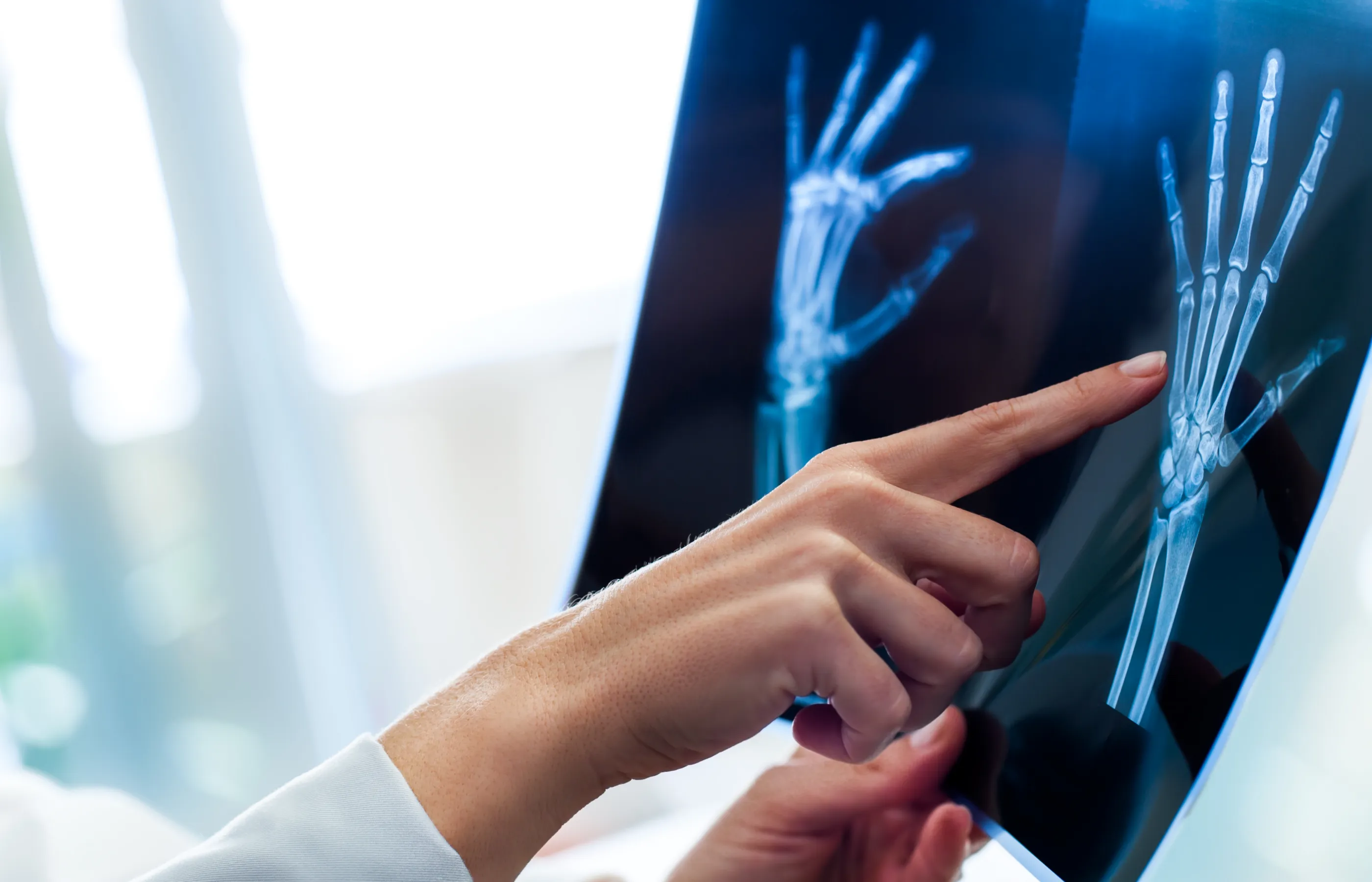Radiologic Technology Certificate Program
Ready to embark on an exciting, rewarding career in radiologic technology?
The Novant Health Presbyterian Medical Center radiologic technology program combines classroom instruction and clinical experience to prepare you to enter a career that requires continual growth and professional integrity. The program will provide you with communication and critical thinking skills as well as the technical and patient care skills you’ll need for a successful career as a radiologic technologist.
The program serves the community by offering a comprehensive educational program to prepare our graduates to provide high quality radiographic imaging to patients in hospitals, physician offices, and medical facilities.
What is radiologic technology?
Imagine getting X-rays on a patient in the emergency department who has sustained injuries in a motor vehicle accident. How would you deal with the responsibility of performing radiographic procedures in the operating room?
A career in radiologic technology is, first and foremost, about taking X-rays and performing diagnostic procedures to help radiologists and other physicians diagnose disease and injuries. But it is more than that: it’s about challenging yourself in a career that will make a difference in people’s lives.
What radiologic technologists do
Radiologic technologists:
- Explain procedures to patients
- Position patients
- Set exposure factors on a control panel
- Expose patients to X-rays to record an image of their anatomy
A radiologist then interprets the images you record.
Where radiologic technologists work
Most radiologic technologists work in hospitals. Positions are also available in:
- Clinics
- Physician offices
- Industry, civil service, education and public health
- Radiographic equipment and accessory sales
- Contrast media and radiologic pharmaceuticals
How much do radiologic technologists make?
The average full-time compensation for a radiologic technologist in North Carolina is $57,586.
Student learning outcomes
The Novant Health Presbyterian Medical Center radiologic technology program is committed to ensuring you graduate possessing the following values:
- Competence in the performance of radiographic procedures and the delivery of healthcare
- Knowledge in the principles and practice of radiologic technology
- Compassion in the delivery of healthcare
- Professionalism in actions and communications
- Commitment to professional development
The program will help you achieve the following goals through success in the related learning outcomes:
- Demonstrate a professional attitude
- Present self in professional manner
- Apply the principles of medical and legal ethics
You will graduate the program prepared to perform as an entry-level competent radiographer:
- Practice radiation protection
- Determine exposure factors
- Properly position patients for procedures
- Evaluate image quality
- Provide a safe environment for the patient
- Demonstrate concern for the welfare of the patient
You will use critical-thinking skills:
- Adjust positioning according to non-routine patient condition
- Adjust technical factors according to non-routine patient condition
- Solve critical thinking case studies
- Assess and interpret age-specific data
You will communicate effectively in the healthcare environment:
- Adjust communication for diverse populations
- Work effectively with others as a team
- Prepare and present educational lecture
Hands-on experience
Through a combination of hands-on learning experiences with inpatients and outpatients in clinical education, you will gain an in-depth knowledge and understanding of the principles and practices of radiologic technology. You will benefit from using state-of-the-art digital imaging equipment and working side-by-side with radiologists and experienced radiologic technologists.
Clinical education assignments are scheduled at hospitals and imaging centers.
Graduation and certification
Upon successful completion of graduation requirements, you will:
- Receive a certificate from Presbyterian Medical Center
- Be eligible to apply to take the examination given by the American Registry of Radiologic Technologists (ARRT)
If you pass the examination, you will be issued a certificate, which confers upon you the right to use the title “Registered Radiologic Technologist” and its abbreviation RT(R)(ARRT).
Program accreditations and associations
National accreditation agency
The Presbyterian Medical Center radiologic technology program is accredited by the Joint Review Committee on Education in Radiologic Technology (JRCERT), an accrediting agency recognized by the U.S. Department of Education. JRCERT promotes excellence in education and enhances quality and safety of patient care through the accreditation of educational programs.
- Current accreditation award status: Five years
- Next review: December 1, 2027
Address and contact
20 N. Wacker Drive
Suite 2850
Chicago, IL 60606-3182
Phone: 312-704-5300
Email: mail@jrcert.org
National certification agency
The American Registry of Radiologic Technologists is the world's largest credentialing organization that seeks to ensure high quality patient care in radiologic technology.
Professional organizations
- The American Society of Radiologic Technologists is the premier professional association of people working in medical imaging and radiation therapy.
- The North Carolina Society of Radiologic Technologists, Inc. is the unified voice that represents the interests of certified technologists in the radiation and imaging sciences throughout the state.
Program faculty
Program director
Betsy Shields, MHA, RT(R), has decades of experience in the field with more than 30 years in education of radiologic technologists. She holds a certificate in radiologic technology from Presbyterian Medical Center, a bachelor'sdegree in biology from Queens University of Charlotte, and a master's degree in health administration from Pfeiffer University.
Clinical coordinator and didactic instructor
Taylor Rogers, MHA, RT(R)(CT), has years of experience in radiography. She received an associate degree in radiography from Rowan Cabarrus Community College and a Master of Health Administration from Pfeiffer University. Her previous role was as radiography clinical instructor for Rowan Cabarrus Community College.
